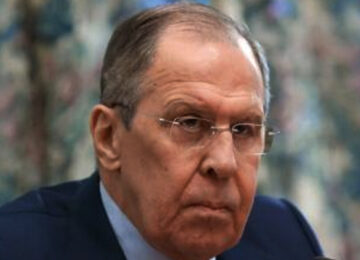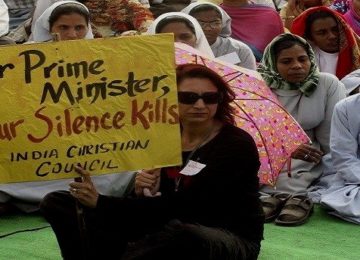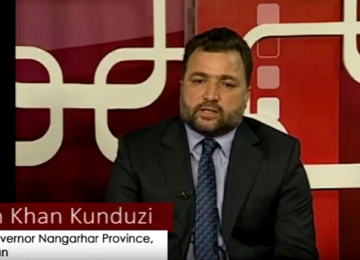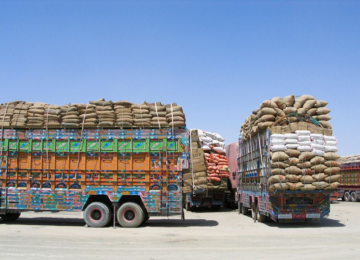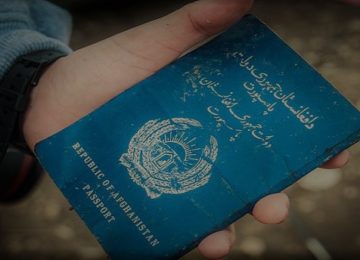October 29, 2018
Center for Research and Security Studies (CRSS) organized a symposium on “Regional Security Dynamics; Hostage to Conflicting Geopolitics” on October 29, 2018 at Marriott Hotel Islamabad. The keynote speakers included veteran of the US Marine Corps and Policy Research Analyst Adam Weinstein, former National Security Advisor Lt. Gen. Nasser Khan Janjua and former Ambassador Asif Ali Durrani.
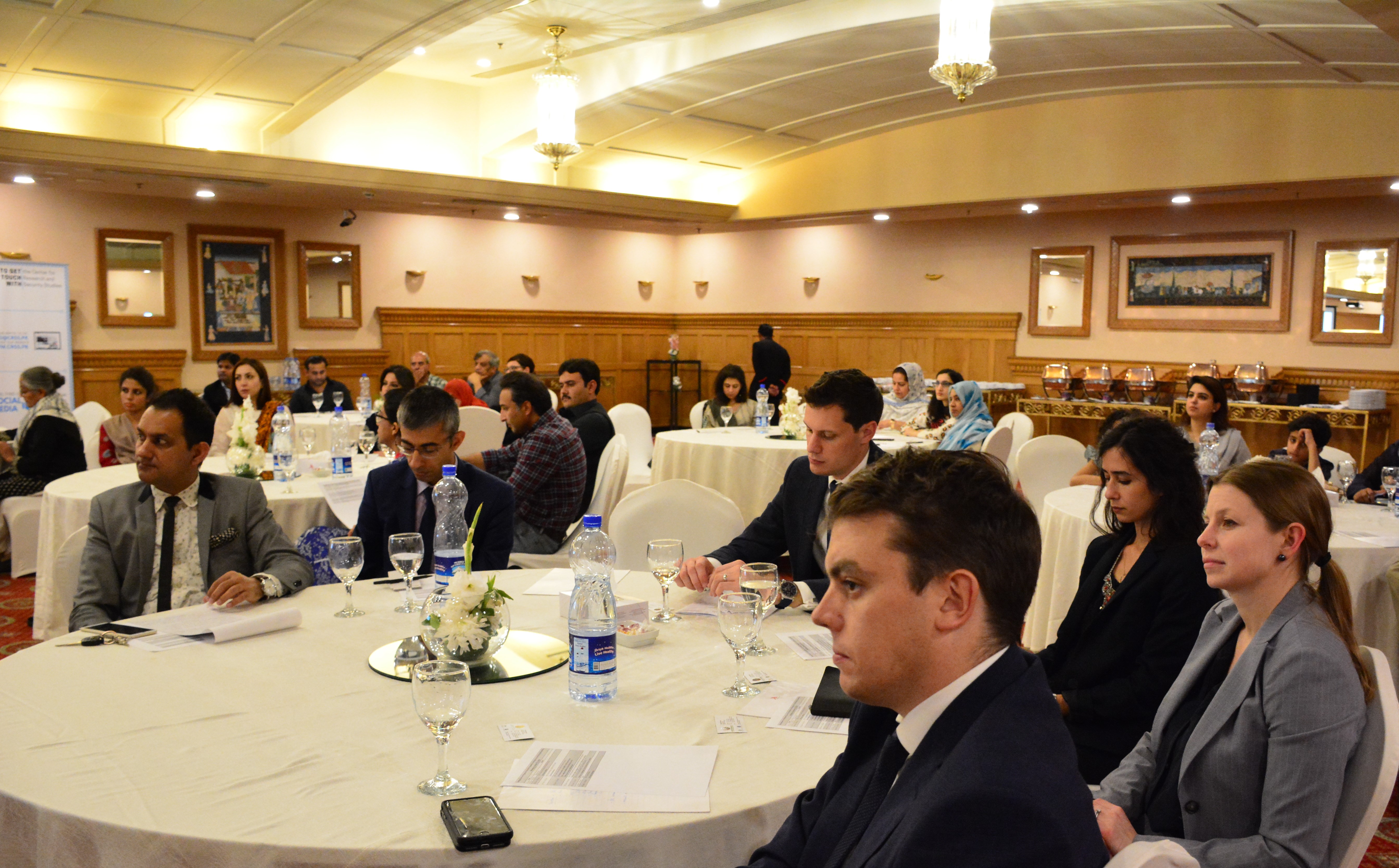
CRSS Executive Director Imtiaz Gul welcomed all the participants – comprising delegates, dignitaries and foreign guests. Gul opened the session by saying that there is exceptionalism we see in global politics. A lot of people talk about Chinese exceptionalism, but then there’s the other side of exceptionalism that is tied to the US, where contradictions are evident. To have the better understanding of US perspective in this regard, Gul invited an American friend Adam Weinstein on the podium to deliver the talk about the subject theme.
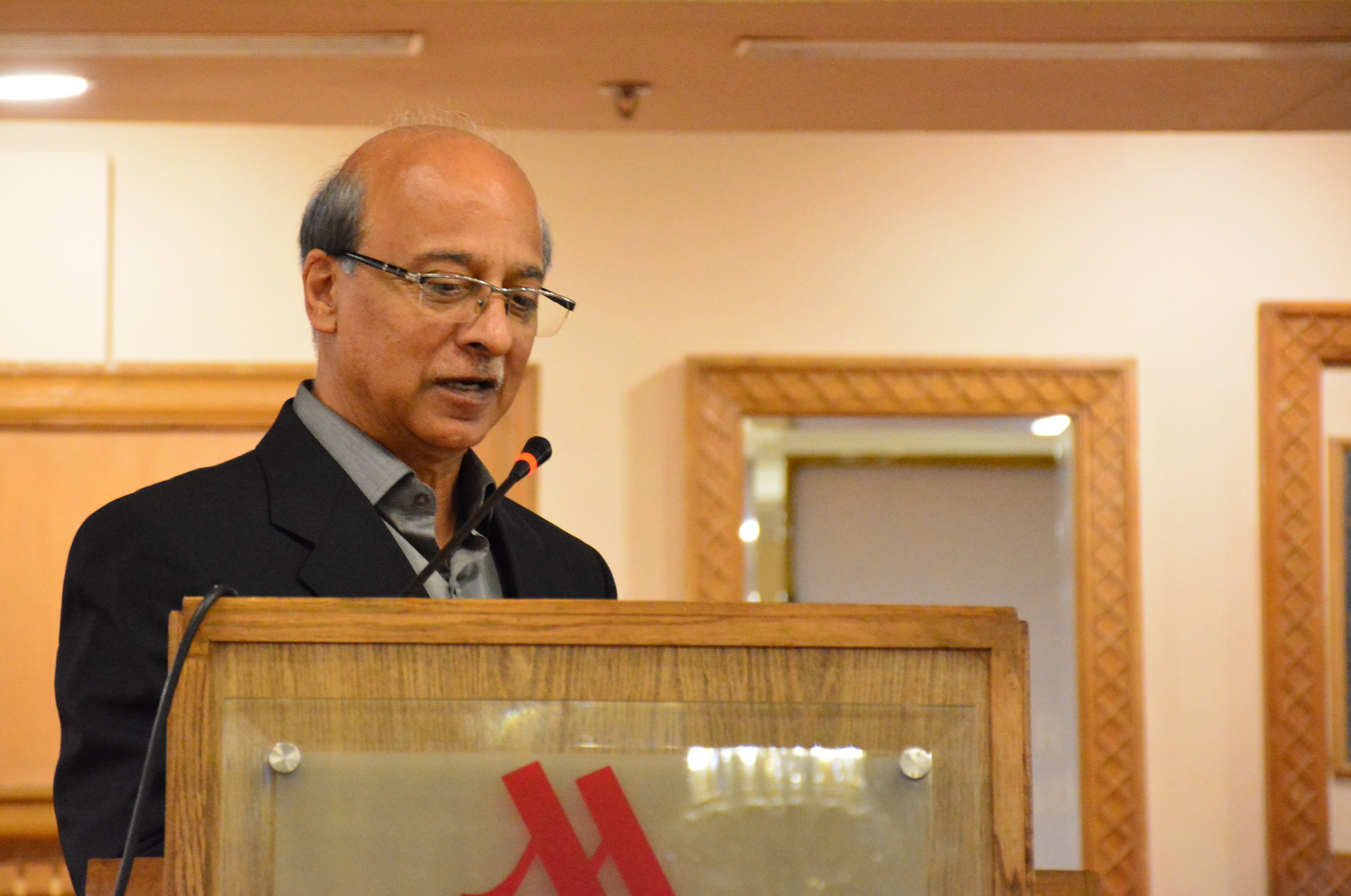
Adam Weinstein, speaking on the theme ‘US Exceptionalism, Geopolitics and Regional peace: Can a Regional Initiative Work Without the US? What Went Wrong in Afghanistan?’ stated that US is stuck in a learning trap – where military solution repeatedly takes precedence when it comes to Afghanistan; Pakistan, on the other hand, continues to press for a political settlement. Owing to this divergence in approaches, the present relations between Washington and Islamabad are increasingly becoming dysfunctional. It has to be understood that the notion of Washington having considerable leverage over Islamabad is a misperceived one; this is due to US’ own conflicting policies, he added. Thus, cooperation is the only way out.
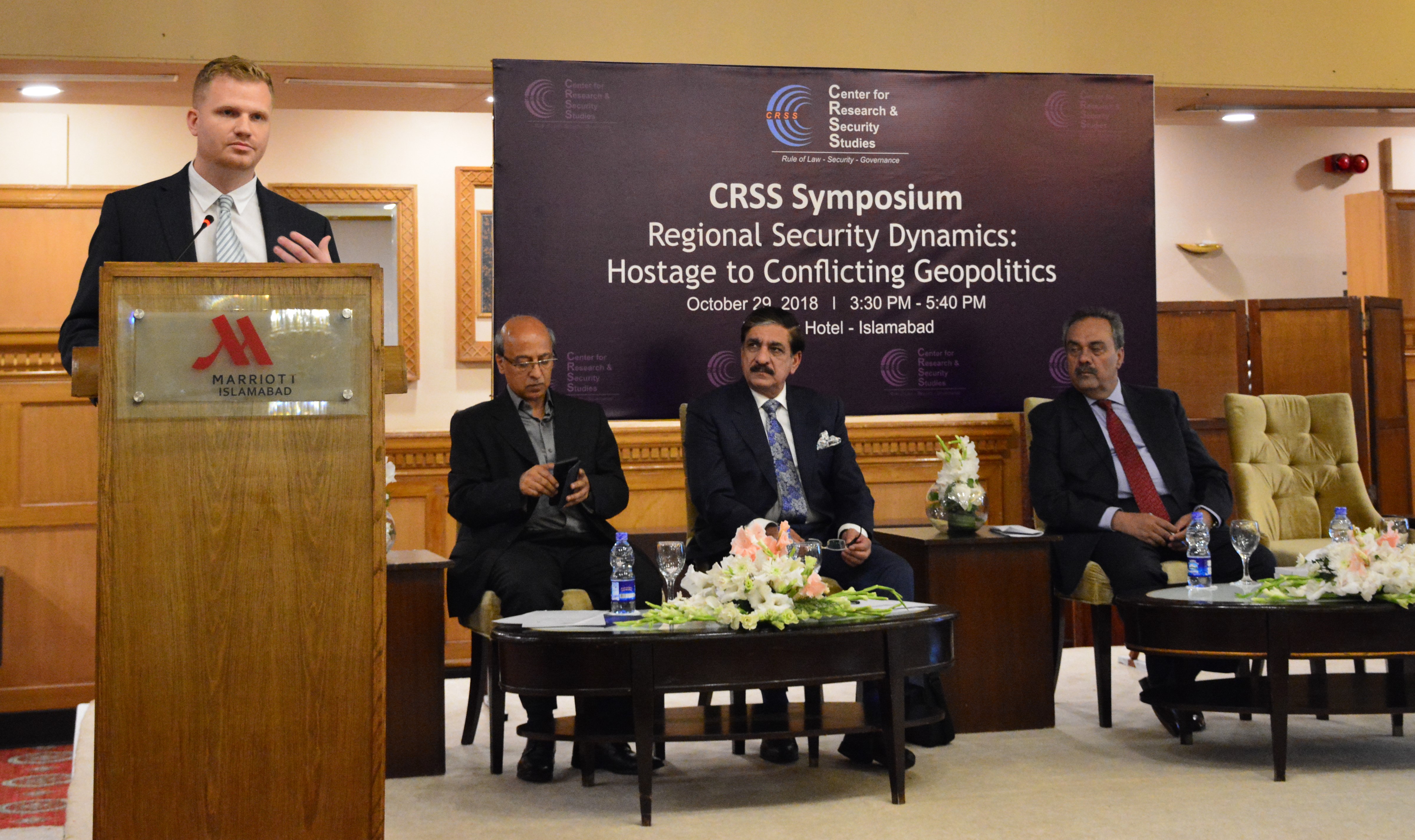
The veteran was of the view that US and Pakistan are stuck in a blame-game-trap where Islamabad perceives that Washington is not committed to Afghanistan, while the US in turn disagrees with Islamabad’s approach towards Afghanistan. The cause of the continuing conflict in the region is that short-term goals are prioritized over long-term stability. There are some fundamental problems that cannot be attributed only to Pakistan, he said; for example, the trust deficit between the US military and its Afghan partners which makes it challenging to counter insurgency on the ground, the rampant corruption and rent-seeking.
Moreover, there does not appear to be any possibility that the US would withdraw from Afghanistan any time soon, Weinstein affirmed. If President Trump could not do it, then no one else will probably do it. Neither the US nor Pakistan have a clear foreign policy, nor a clear solution for the conflict in Afghanistan, because both countries are bound by the policies of frequently changing governments – having their own agendas. Furthermore, the former US marine was of the view that the defense department and industry certainly have a leverage in influencing the foreign policy in this regard. The problem with Washington is that it still believes in a military solution in Afghanistan. Not just the government, but also the civil society and think tanks. Even when political solutions are entertained, the military solution still takes precedence.
Adam Weinstein also highlighted some misconceptions that US has regarding Pakistan. A misconception common in US foreign policy in general is that elected governments don’t matter in hybrid regimes – regimes where there are different centers of power. For example, in Iran, where people say that all the important decisions are made by the Supreme leader and therefore, the domestic politics and the Presidency are pretty much irrelevant. The same thinking exists regarding Pakistan as well where the assumption is that party politics in Pakistan doesn’t matter in Pakistan and the real power resides elsewhere. Another misconception is that US thinks Pakistan’s security establishment should have goals that are not in conflict with the US. There should be an acknowledgement that the Pakistani military has its regional interests and concerns as well, which US disregards altogether.
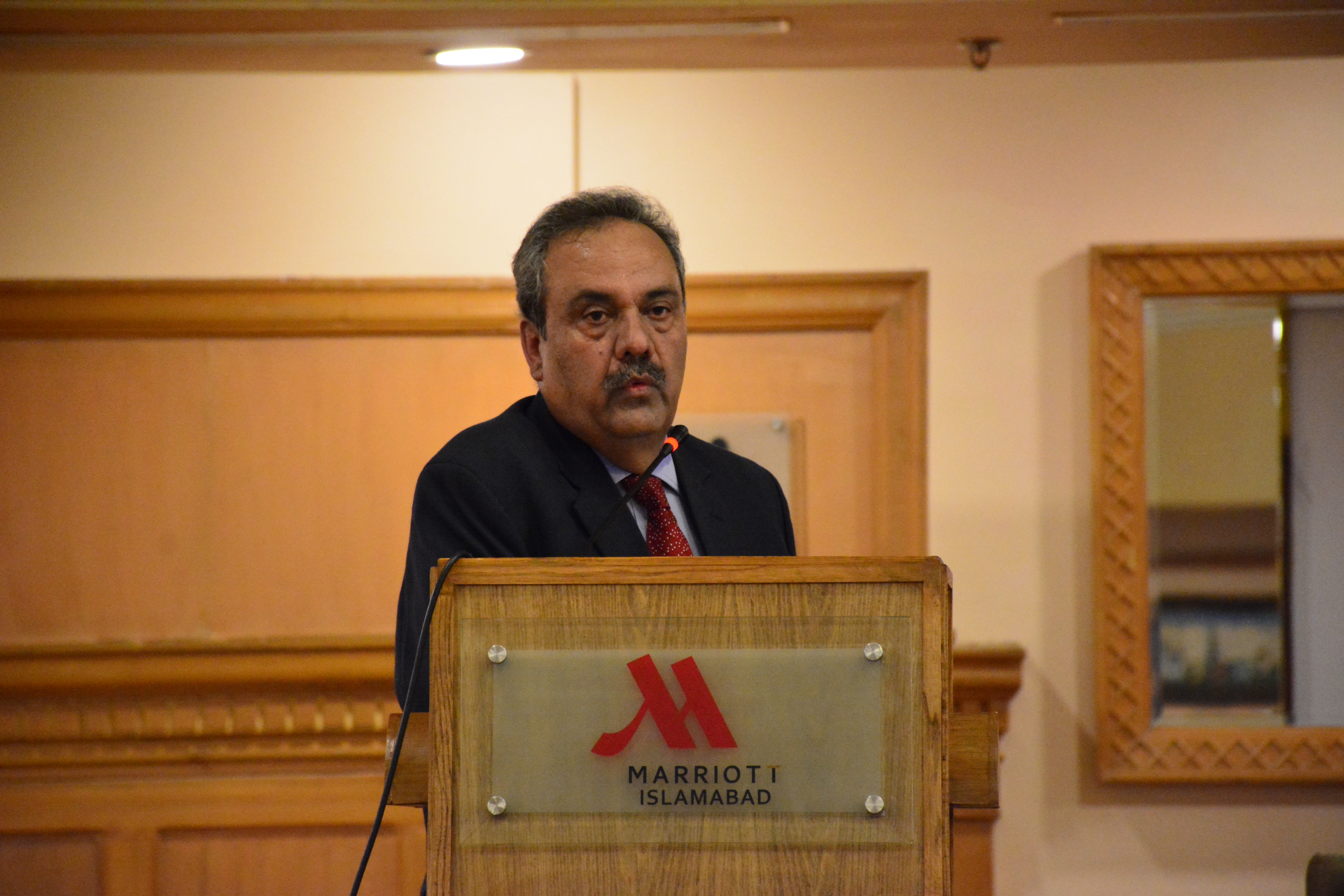
Former Ambassador Asif Ali Durrani, while sharing his understandings on ‘Pakistan’s Challenges in the Syrian and Yemen Conflicts’ apprised the audience that Pakistan is placed in a difficult situation in both cases, as it enjoys friendly relations with both Yemen and Syria. According to the Ambassador – who has served as the Ambassador of Pakistan to Iran, UAE and Afghanistan – when crisis erupted in Syria, Pakistan followed the principle of sovereign equality. In 2012, Pakistan strongly emphasized a peaceful politics resolution of the Syrian crises without outside interference. In the case of the Yemeni conflict, Pakistan can offer bilateral security assurances to KSA and other GCC countries; as has been the practice in the past; however, it has so far kept a neutral stance without taking any sides. The neutral stance of the country has been appreciated in the international community, despite Saudi Arabia and United Arab Emirates’ annoyance. Being a nuclear weapon state, Pakistan would negate its own UN resolutions supporting negative security assurances, if it were to go against a third country. The resolution being that nuclear weapon states should give assurances to non-nuclear weapon countries that their nuclear weapon states would not be used against them.
He further stated that the conflicts in Syria and prolonged instability in Iraq and Lebanon have also provided strategic advantages to Iran which, as a result, have posed bigger challenges to the US, Israel, Saudi Arabia, and the GCC countries, and thus, further perpetuated the conflict. For Americans, the purpose appears to be a regime change in Syria. Whether that is going to happen seems to be an optimistic guess by the US, the former diplomat added. Concluding his thoughts regarding Pakistan’s role in Syrian and Yemen crises, the diplomat said, “neutrality is the name of the game for Pakistan, come what may”.
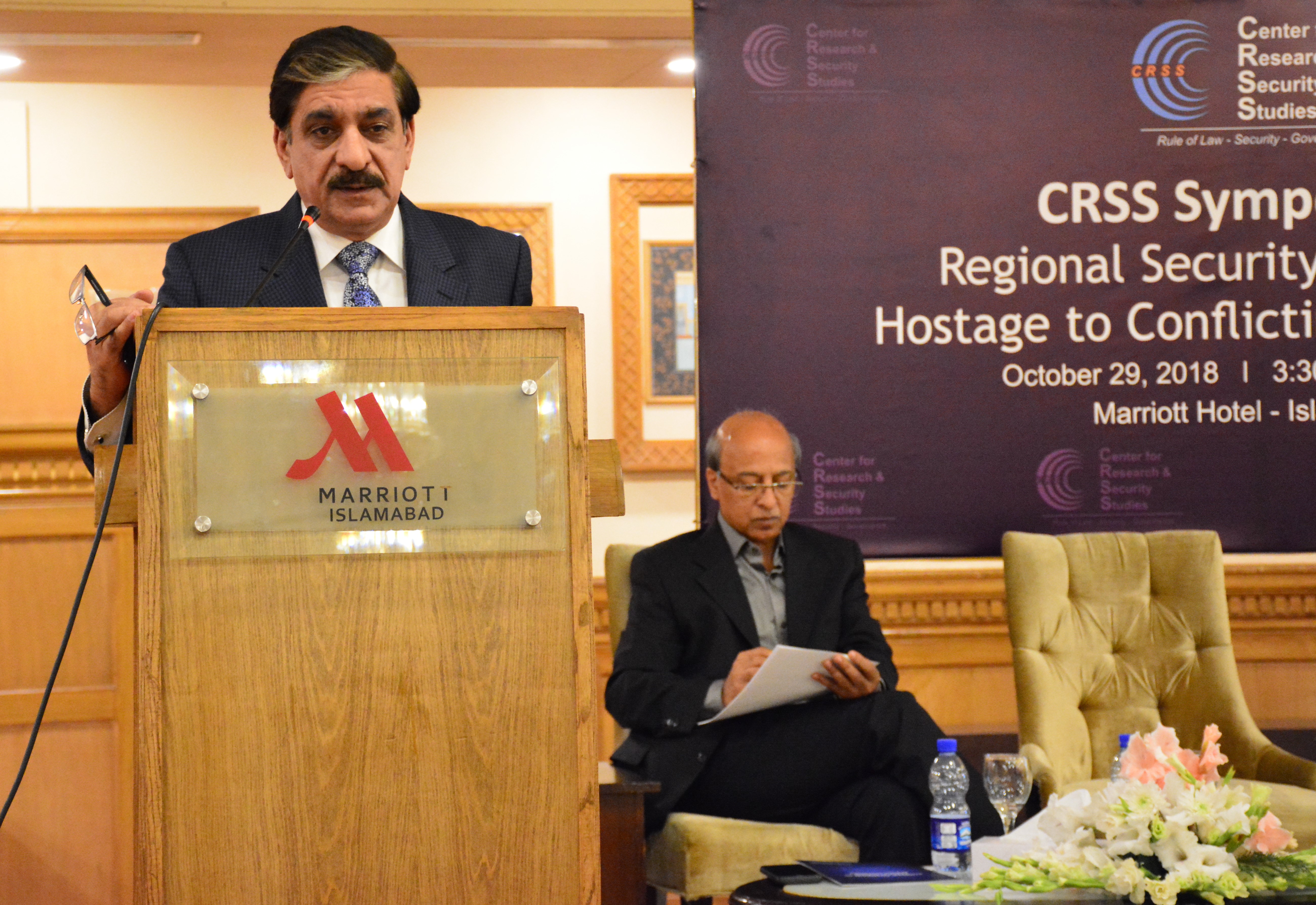
Pakistan’s former National Security Advisor (NSA) Gen. (retd) Nasser Khan Janjua, while sharing his insights about ‘Pakistan’s Role in Region in Relation to Afghanistan and China’ enunciated that United States, China and Russia can collectively make the world a better place if only they come together in a cooperative engagement. If only the US could have a better understanding of how the superpower’s outlook has made the South Asian region fragile; it may lead to better engagement of US with China and Russia. Pakistan should not be termed as a fragile or failed state, keeping in view that despite having fought two major wars with its main neighboring adversary, while remaining in a 40-year long conflict in the region, the country is still thriving and ever more resilient.
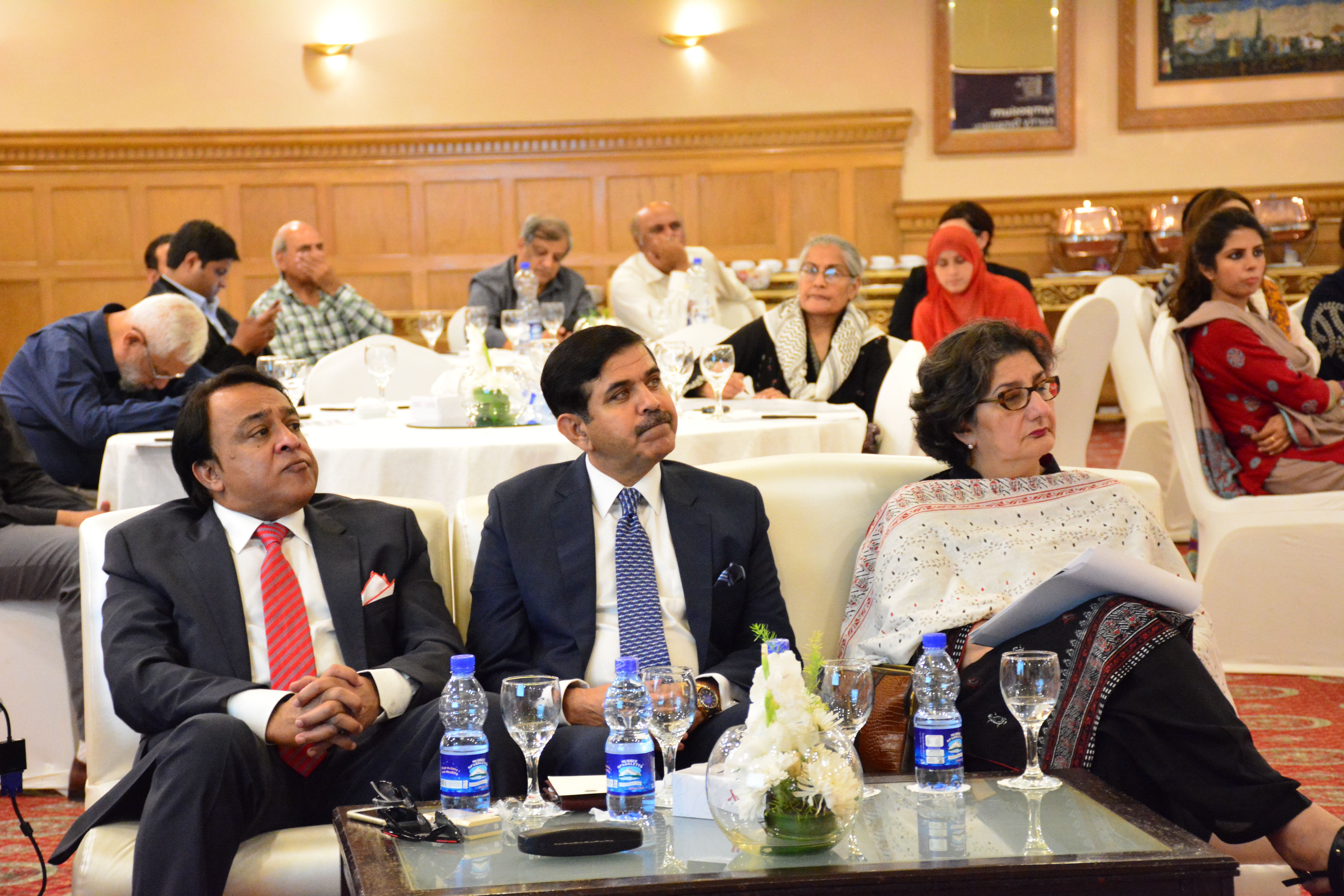
The former NSA further stated that rising China, resurging Russia and ideologically different but resource rich Muslim world are some of the challenges US is facing right now. Containing China, preventing resurgence of Russia and eroding the Muslim world is how the US has chosen to tackle these challenges. He also warned that Asia is the future of our world, any endeavor to rebalance it could go wrong, putting the future at stake. Commenting on Afghanistan imbroglio, the NSA impressed upon sense of need for cooperation and said “Let’s not hurt Afghanistan anymore; we all need to heal this wound, Afghanistan deserves a closure soon”.
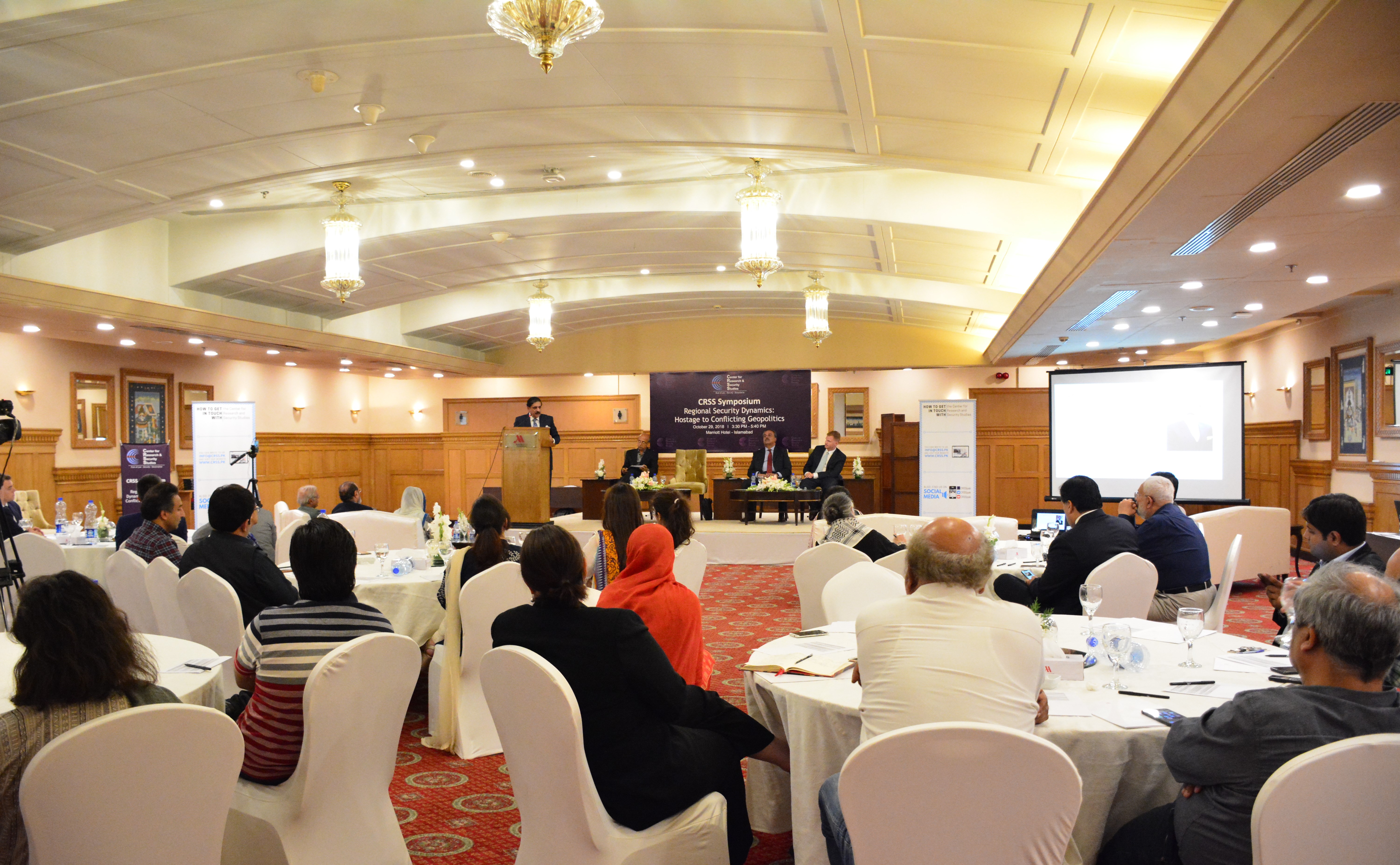
In the Q & A session, different questions were raised regarding the cost of peace process in Afghanistan, the outcome of US-Taliban talks, the US rationale for continuing war in Afghanistan, and the release of Mullah Barader? Answering to the questions, panelists responded that it is about choosing between bad and worse. Choosing bad seems to be a pragmatic approach rather than to be stuck in thinking of past atrocities and not willing to move forward.
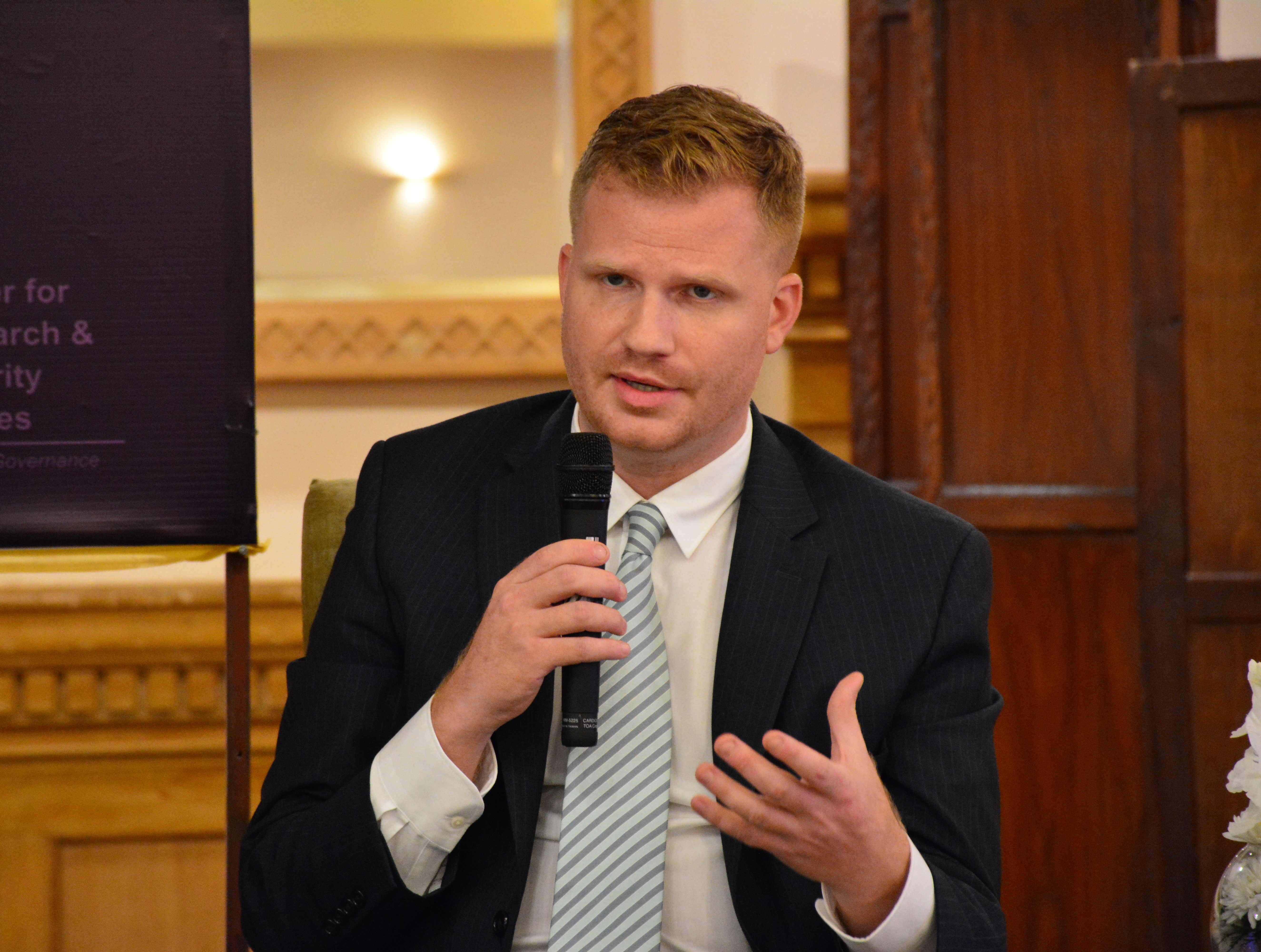
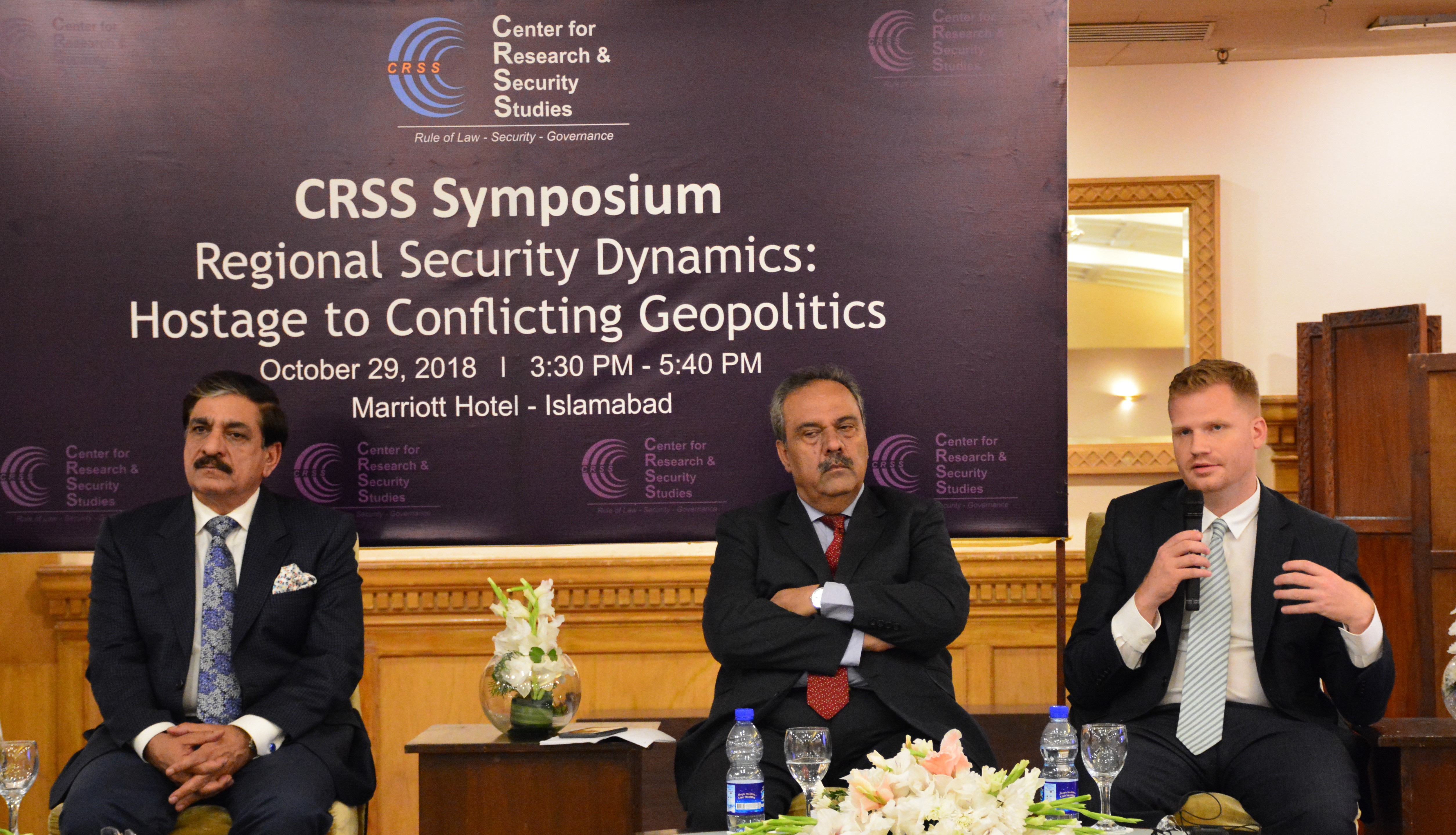
Responding to Taliban US talks, panelists held the view that it should be seen with optimism as peace/political solution is always possible, given that all parties involved are serious about peace. Commenting on the perpetuating war and release of Mullah Barader, panelists held the view that there is no rationale for continuing war in Afghanistan; basically, US fears safe haven for terrorists if the troops withdraw from Afghanistan or if Taliban become part of the government. But it is to be understood that Afghanistan is not the only country having safe havens for terrorists; hence, US fears are exaggerated. While Mullah Barader’s release seems to address the trust deficit between Pakistan and Afghanistan and also one step more towards peace process, but it is to be seen how much influence Mullah Barader still enjoys within Taliban’s circle.
Adam Weinstein’s Quaid-i-Azam University (QAU) Visit
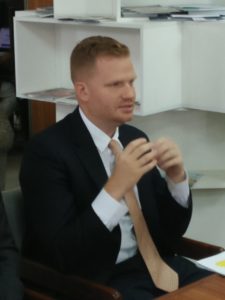 Following day on October 30, 2018, CRSS arranged a lecture in collaboration with School of Politics and International Relations (SPIR), Quaid-i-Azam University (QAU), Islamabad, where Adam Weinstein spoke to the students informally to make things more comprehendible for the students. Weinstein talked about the same theme and points he mentioned during the CRSS Symposium a day earlier. In addition to that, he cited the dissertation of Collin F. Jackson – who served as the Deputy Assistant Secretary of Defense to Afghanistan, Pakistan and Central Asia since August 2017 – which he wrote in 2008 at MIT. He looked at different models of counter-insurgency. The first model he looked at was where the country conducting the counter-insurgency becomes a victim to a learning trap in which it assumes small victories, thinking that the tide of the war is changing. It appears that Afghanistan prior to the surge in 2009 was experiencing similar environment. There were small victories against the Taliban and the US assumed the tide of the war was changing, while on the other hand, US was also distracted by the conflict in Iraq. Once the US saw that the conflict in Afghanistan was going backwards, President Obama introduced the surge. As a result, in 2009, we really saw the tide change. A lot of ground was taken back from the Taliban. A lot of provinces started to be stabilized. It appears that since 2009, simultaneous counter-insurgency campaign combined with the development of civil institutions lead to the politics of Afghanistan being inherently militarized. On the other hand, problem now is that the Trump administration wants to reduce troops on the ground, but it also wants to maintain its stay, which is a very ineffective strategy, because some form of political solution needs to be on the table. A real political solution, not a half-hearted solution which is in the shadow of military operations, he told the students.
Following day on October 30, 2018, CRSS arranged a lecture in collaboration with School of Politics and International Relations (SPIR), Quaid-i-Azam University (QAU), Islamabad, where Adam Weinstein spoke to the students informally to make things more comprehendible for the students. Weinstein talked about the same theme and points he mentioned during the CRSS Symposium a day earlier. In addition to that, he cited the dissertation of Collin F. Jackson – who served as the Deputy Assistant Secretary of Defense to Afghanistan, Pakistan and Central Asia since August 2017 – which he wrote in 2008 at MIT. He looked at different models of counter-insurgency. The first model he looked at was where the country conducting the counter-insurgency becomes a victim to a learning trap in which it assumes small victories, thinking that the tide of the war is changing. It appears that Afghanistan prior to the surge in 2009 was experiencing similar environment. There were small victories against the Taliban and the US assumed the tide of the war was changing, while on the other hand, US was also distracted by the conflict in Iraq. Once the US saw that the conflict in Afghanistan was going backwards, President Obama introduced the surge. As a result, in 2009, we really saw the tide change. A lot of ground was taken back from the Taliban. A lot of provinces started to be stabilized. It appears that since 2009, simultaneous counter-insurgency campaign combined with the development of civil institutions lead to the politics of Afghanistan being inherently militarized. On the other hand, problem now is that the Trump administration wants to reduce troops on the ground, but it also wants to maintain its stay, which is a very ineffective strategy, because some form of political solution needs to be on the table. A real political solution, not a half-hearted solution which is in the shadow of military operations, he told the students.
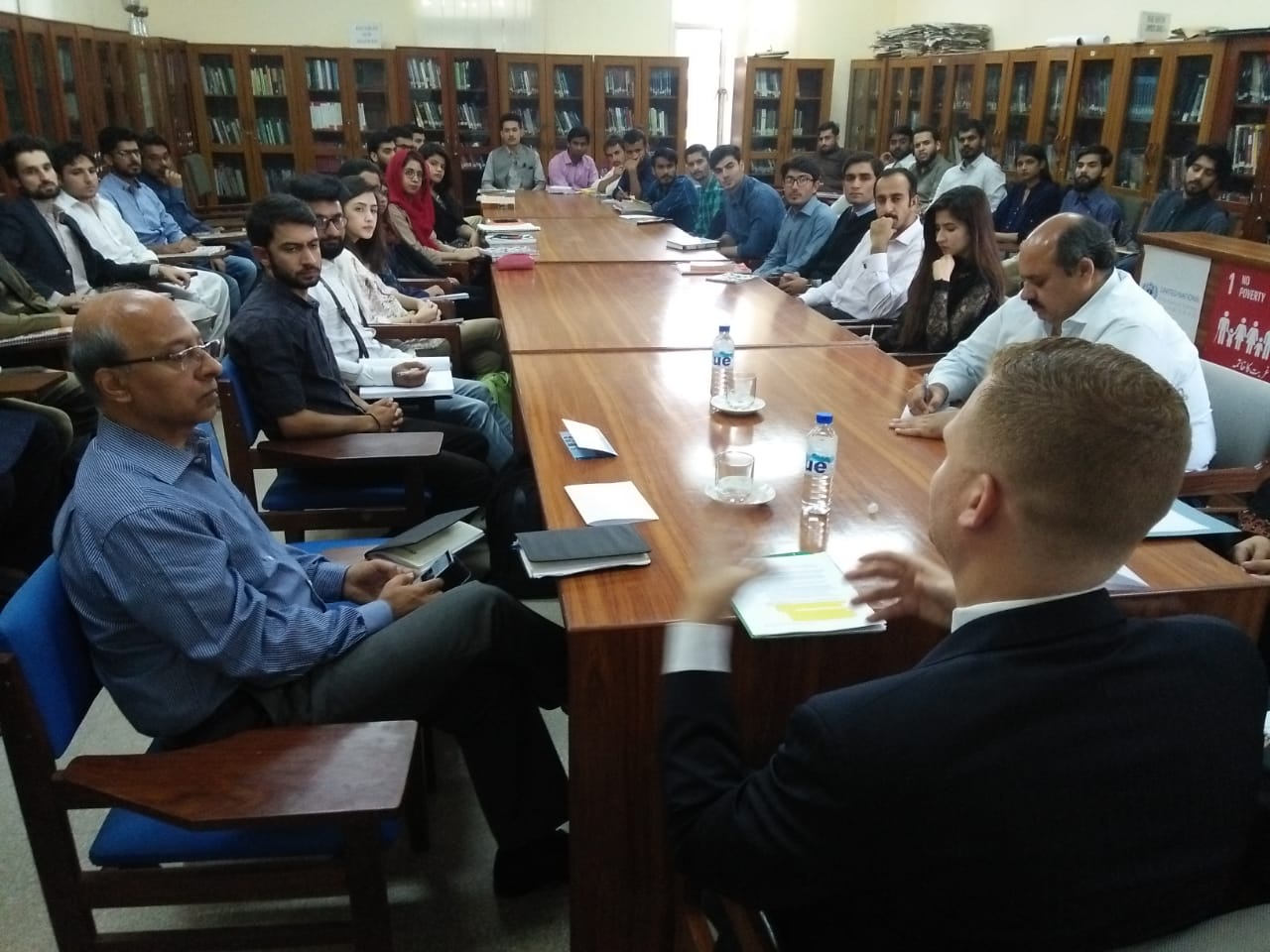
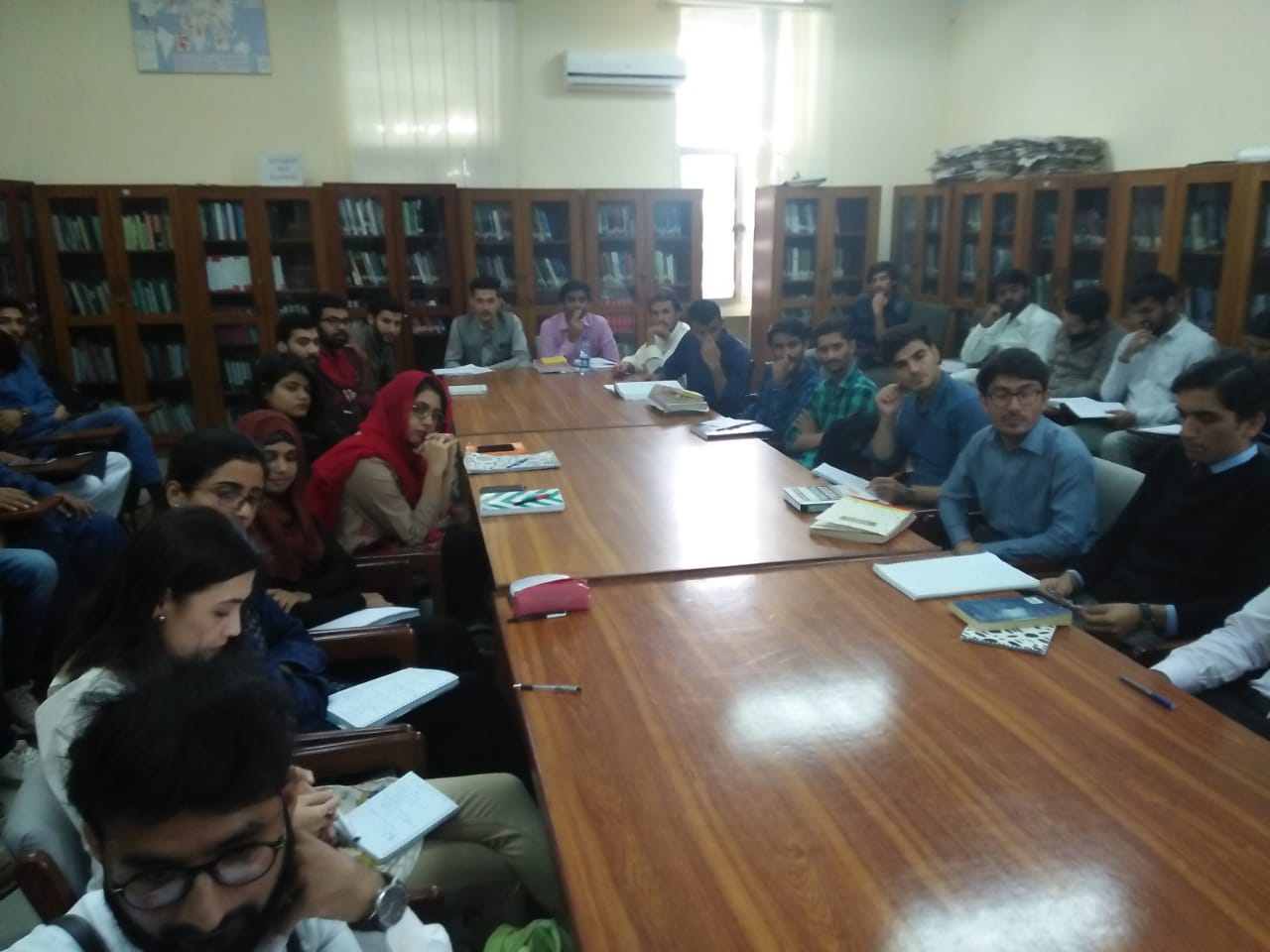
Commenting on Pak-US relations, Weinstein was optimistic and said that there is a lot to be hopeful for. Highly competent people on both sides, at the end of the day want to normalize relations.
In Q & A Session, Dr. Zafar Nawaz Jaspal – Associate Professor at SPIR asked about the reality of Salala incident, to which Weinstein replied that he does not know for sure. Maybe it was a mistake to send a message to Pakistan as part of pressure tactics for “do more”; however, it backfired. A student asked about US’ special treatment towards India at the expense of Pakistan. The US veteran responded to the question candidly by saying that India is a huge country; there are many perks to be friends with India; however, he maintained that Pakistan is also significant and that US relations with India should not be at the expense of Pakistan. Another student shared her curiosity about US obsession with military approach. Once again, Weinstein bluntly and honestly responded that political solution doesn’t sell, while military one does. ‘War sells’, he added.
The session concluded with a thank you note from Dr. Farhan Hanif Siddiqi – Associate Professor at SPIR, QAU, who was hosting CRSS team and Adam Weinstein. Dr. Farhan also thanked CRSS for arranging the lecture. He stated that the lecture was insightful and hoped that the students would get some new research ideas, while thinking out of the box. SPIR looked forward to strengthen the collaboration with CRSS for similar lecture series in future as well.
© Center for Research and Security Studies (CRSS) and Afghan Studies Center (ASC), Islamabad.




